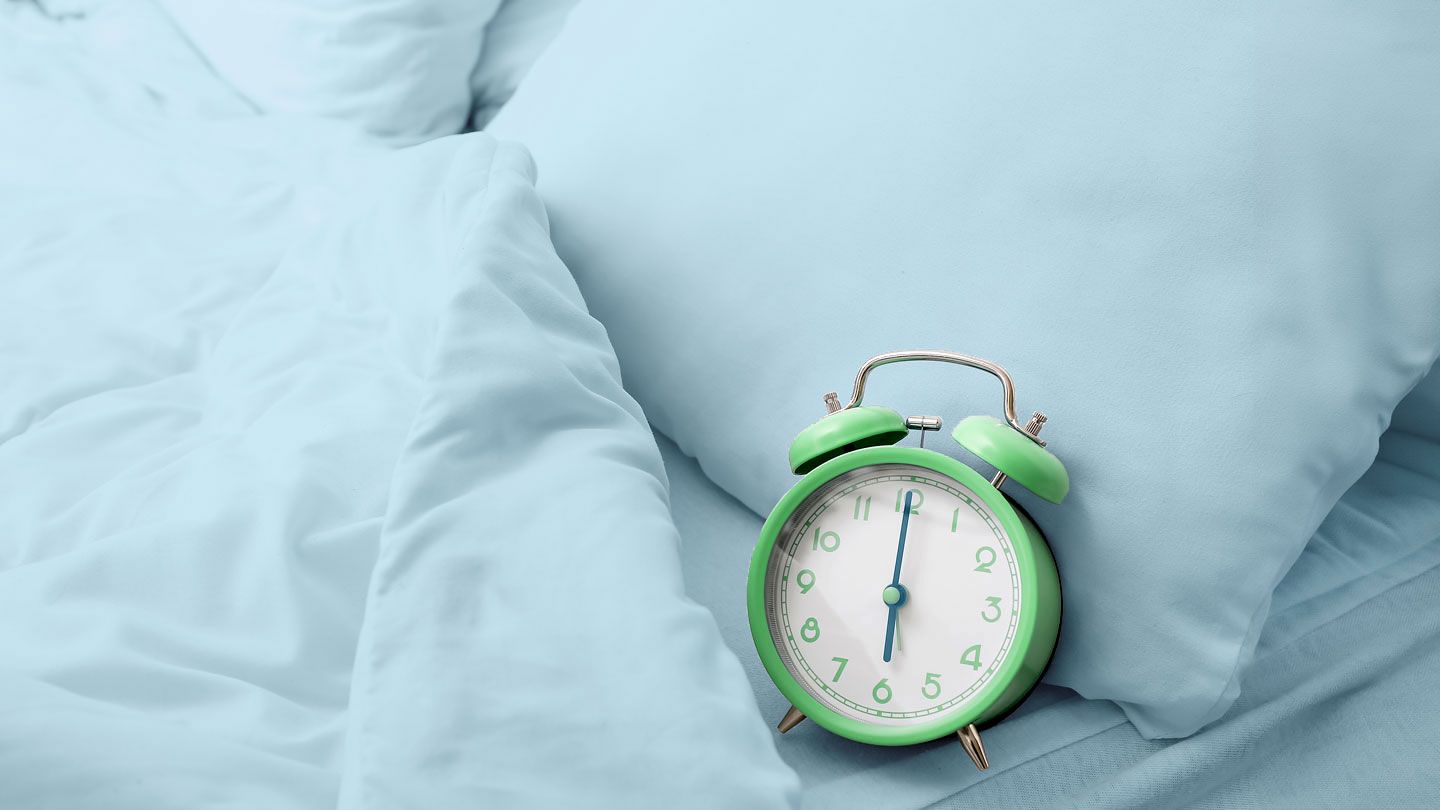The Key to Waking Up Early is Preparation
Waking up early in the morning can be a challenge, especially if you're used to sleeping in. However, with some preparation and planning, it is possible to become an early riser. Here are some tips and tricks to help you wake up early feeling refreshed and ready to start your day.
Go to Bed Early
The most obvious way to wake up early is to make sure you go to bed early enough to get sufficient sleep. Most experts recommend adults get 7-9 hours of sleep per night. To wake up early, you'll want to be on the earlier side of that range. If you need to be up by 5 AM, then an 8 PM bedtime is probably a good target. Going to bed early reinforces your natural circadian rhythm and makes it easier for your body to wake up early.
Have a Consistent Sleep Schedule
In addition to an earlier bedtime, having a consistent sleep schedule helps signal to your body when it should go to sleep and wake up. Try to stick to the same bedtime and wake up time, even on weekends. This regulates your circadian rhythm so you'll find it easier to wake up early every day.
Avoid Screens Before Bed
Screens from phones, tablets, computers and TVs emit blue light. This blue light tricks your brain into thinking it's daylight. Avoid screen time at least an hour before bed to help your body gear down for sleep. Read a book or do relaxing activities like journaling, stretching or meditation instead.
Limit Caffeine Past Noon
Caffeine has a half life of 5-6 hours. That means it takes 5-6 hours for the caffeine levels in your body to reduce by 50%. If you have coffee after lunch, there still may be enough caffeine in your system come bedtime to disrupt your sleep. Limit caffeine intake to mornings only if you want to get to bed early.
Expose Yourself to Bright Light in the Morning
Exposure to light cues your brain to become more alert. As soon as you wake up, open the blinds and let bright natural light fill the room. You can also install smart light bulbs that gradually increase light levels to simulate sunrise. Bright light signals your body that it's time to wake up.
Take a Melatonin Supplement
Melatonin is a naturally occurring hormone that regulates your sleep cycle. A melatonin supplement can help you fall asleep faster and stay asleep. Take 1-3 mg of melatonin 30 minutes to 1 hour before bedtime to help reset your circadian rhythm. Melatonin is especially helpful if you work night shifts.
Set Multiple Alarms
Relying on a single alarm is risky. You might accidentally sleep through it or turn it off without fully waking up. Set 2-3 alarms spaced 5-10 minutes apart. You'll have extra reminders to wake up and multiple chances to drag yourself out of bed.
Place Your Alarm Across the Room
To prevent hitting the snooze button too easily, place your alarm clock across the room. You'll be forced to physically get out of bed to turn it off. This extra effort helps jar you awake. Also consider setting an alarm on your phone placed under your pillow to wake you before your main alarm goes off.
Have an Early Morning Motivator
It's easier to pry yourself out of bed when you have a compelling reason. Schedule something early in the morning that you'll look forward to like breakfast with a friend, a workout class, or time to work on a passion project. Having an early morning motivator makes it more tempting to leave the warmth of your bed.
Making Mornings Easier
Waking up early is just the first challenge. Feeling awake and energized is another battle. Here are some tips to make early mornings feel more effortless.
Take Time to Stretch and Hydrate
After turning off your alarm, don't leap out of bed. Take a few minutes to stretch out tight muscles and hydrate with some water. Stretching boosts your circulation. Hydration raises your blood pressure and body temperature. Both help you feel more alert.
Splash Cold Water on Your Face
Splashing cold water on your face triggers a phenomenon called the diving reflex. It causes your body to automatically awaken by increasing your heart rate and constricting blood vessels. The quick temperature change literally shocks your system awake.
Listen to Upbeat Music
Peppy music naturally boosts your mood, energy level and alertness first thing in the morning. Make a morning playlist filled with your favorite upbeat tracks. Listening while you get ready can help you feel more enthused about starting your day earlier.
Let in Natural Light
Daylight immediately improves alertness and mood. Open the curtains as soon as you get out of bed. Try to eat breakfast near a window or outdoors. Spending time in natural light right after waking up makes early mornings feel fresher.
Exercise for a Quick Energy Boost
A quick early morning workout immediately increases your endorphins and adrenaline. You don't need an intense workout to see the benefits. Even just 5-10 minutes of cardiovascular exercise or brisk walking can give you an energy boost first thing in the AM.
Have a Healthy Breakfast
Don't skip breakfast when you're waking up early. A filling, nutritious breakfast helps replenish your glucose levels and provides energy for your day. Avoid sugary cereals or heavy meals which can trigger fatigue and lethargy. Focus on high protein and complex carbs.
Making Early Mornings a Habit
The initial adjustment period to becoming an early riser can be challenging. Here are some ways to push through grogginess and make early mornings a habit:
Be Consistent
It can take a few weeks to properly adjust your circadian rhythm. Don't quit after just 1-2 days of struggling with early mornings. Commit to your new wake-up time for at least 2 weeks before deciding if it's not right for you.
Have a Transition Period
If your current wake-up time is much later than your goal, gradually transition in 15 minute increments. Set your alarm 15 minutes earlier each week until you reach your ideal time. Gradual change will be easier to adapt to.
Use Sleepy Time Wisely
Take advantage of the cozy early morning time before others rise. Sip some tea, journal or meditate without distractions. Use it to work on a project or prepare for your day. Embrace the quiet morning time as a gift.
Pair it With Something Enjoyable
If alone time isn't motivating, pair early rising with something you look forward to like reading, listening to podcasts, or having breakfast at a cafe. Add something pleasurable into the mix to make waking up early more enticing.
Enlist a Buddy
Ask your partner, friend, co-worker or family member to join you in waking up early. You can motivate each other and commiserate as you adjust. Having social support and accountability boosts your chance of success.
Troubleshooting Common Issues
Many common challenges can interfere with becoming an early riser. Here are some fixes for frequent issues:
Not Tired at Bedtime
Try winding down earlier in the evening by limiting screen use, avoiding caffeine after noon, exercising earlier, and doing relaxing activities before bed. If you're still not tired, take 1-3 mg of melatonin 30 minutes before bedtime.
Excessive Grogginess
If you wake up feeling excessively drowsy, try moving your bedtime 15-30 minutes earlier. Also check if any medications you take could be making you drowsy in the morning. Ask your doctor about alternatives.
Difficulty Falling Asleep
Limit screen use and caffeine consumption for at least 1 hour before bedtime. Make sure your bedroom is cool, dark and quiet. Use white noise or blackout curtains if needed. If still struggling, speak with your doctor about sleep aid options.
Oversleeping
Place your alarm clock farther from your bed to make it harder to hit snooze. Set multiple loud alarms on different devices. Ask someone to call you if they haven't heard from you by a set time. Enlist someone to check on you if the issue persists.
Waking Up Early is Achievable
Becoming an early riser requires commitment, consistency and preparation. But with the right techniques and mindset, it's certainly achievable. Use these tips and tricks to shift to an earlier wake-up time. Your mornings will transform from a struggle into peaceful, productive time you look forward to.
FAQs
How much sleep do I need to wake up early?
Most experts recommend adults get 7-9 hours of sleep per night. To wake up early, aim for the lower end of that range. If you need to be up by 5 AM, try to be asleep by 8 or 9 PM.
What if I'm still tired after 8 hours of sleep?
Try gradually moving your bedtime 15 minutes earlier each night until you find your optimal sleep time. Limit caffeine past noon, reduce evening screen time, and avoid heavy meals before bed to make falling asleep easier.
Is it better to wake up early or go to bed early?
Both are important! Go to bed early enough to get 7-8 hours of sleep so you can wake up early feeling rested. Maintaining a consistent sleep schedule is key.
Should I use multiple alarms to wake up early?
Yes, set 2-3 alarms spaced 5-10 minutes apart as backup. Put alarms across the room so you have to get up to turn them off. Using multiple alarms reduces risk of oversleeping.
What time should I stop drinking caffeine if I wake up at 6 AM?
Caffeine's effects last 5-6 hours. To allow your body to process caffeine before bed, limit caffeine past noon if waking up at 6 AM. Substitute morning caffeine with decaf coffee after lunch.
Disclaimer: This article is for informational purposes only and does not constitute medical advice. Always consult with a healthcare professional before starting any new treatment regimen.
Related Coverage
Make a customized sleep gift basket to help friends and family relax and sleep better. Get tips on choosing sleep-promoting items like linens, skincare, books and more....
Learn how to reset your natural sleep-wake cycle if you have a circadian rhythm disorder. Employ sleep restriction, light therapy & melatonin supplementation....
Dream analysis can reveal hidden truths about yourself. Learn what impacts dream memory, how to improve recall, and techniques for mapping your dreamscape....
Shift your bedtime gradually earlier, limit evening blue light, stay off caffeine after lunch, and use multiple alarms to adapt to waking up consistently at 5:30 AM....
This article dives deep into the psychological motivations and impact of catfishing, the disturbing trend of creating fake online identities and relationships....
Alcohol disrupts healthy sleep, but non-alcoholic nightcaps like herbal tea, warm milk, and mocktails with soothing ingredients can aid relaxation while improving sleep quality....
Sleep is crucial across the lifespan, but needs and habits evolve over time. Understanding sleep changes from infancy to older adulthood promotes lifelong health....
Attempting to train oneself to get by on just 4 hours of core sleep each night almost inevitably backfires for most adults. Learn about segmented sleep patterns....
Learn about the biology of dreaming, theories on why we dream, and tips to improve dream recall like keeping a journal and waking during REM sleep....
Learn about the benefits of power naps, ideal nap length and timing, who they can help most, and tips for productive napping without affecting nightly sleep....








